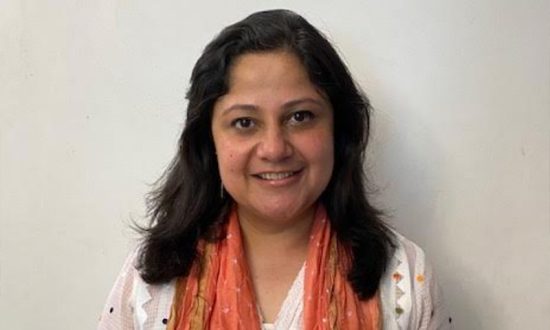Dr. Aarti Bakshi is a registered RCI psychologist, with a PhD in developmental psychology. She comes with 14 years of rich experience working with children and young adults. Aarti is a mindfulness enthusiast, a storyteller and a curriculum developer, who accumulates experience and expertise from renowned hospitals, universities, and schools where she works with. She is a CBSE committee member for Life skills, values and well-being, Accessibility Campaign India. She currently works as a School Counsellor at Pathways School (a leading IB school in Noida) as well as a visiting faculty at Delhi University.
Aneesh raced through his assessment, managing to just type the final lines. Oh! How his fingers flew over the keypad, while typing. His mother had wanted him to write the homework but as his teacher had given him a choice, he had chosen typing.
Writing, typing, voice recording, and creating a video are all communicative tools to express. Each with its positive effect, so one wonders what to emphasize on for the post-Covid education.
Writing whether cursive or block written has a certain way every alphabet is written. The loops that go up and down a line have intricate hand movements, to shape every alphabet. In contrast, typing requires the same tapping movement. It is the discussion Amish’s mother had with him. Well, he did ponder on the intricacies in writing builds on a few skills:
- Organization skills- When he had to write in his notebooks at school, he had to put in a lot of effort. Writing every word from the margin, following the line as a starting point for every ink dent and of course, using various hand movements, required more time than typing; but surprisingly the material that he wrote, he remembered it longer.
- Using the senses- while writing the feel of the paper and writing tool mattered, his hand- eye coordination, and hearing the scribble on paper mattered.
- Increase in Memory and retaining-As before writing, Anish realized that he thought and read his sentences, checking the sentence structure and grammar as well as editing the final product. Interacting with the content repeatedly, left an impact and let it settle in his brain.
- Focus build-up- His teacher explained that writing required concentration to adhere to the process. It also needed Anish to have single focus and thus not waver for the task to be finished.
- Increasing connection between written work and knowledge connect- for writing, listening in class and jotting notes, research and then making notes; discussing and brainstorming and then creating a mind map were a few ways to catch up with knowledge.
- Critical thinking is built more while writing. Handwriting is known to encourage to infer thoughts and connect the various thoughts.
One does wonder that for a quick solution typing may be a way out. Yet, researchers state that the effect of writing and drawing activates various parts of the brain whereas typing does not support the synapse of neurons to the same order.
Today’s students use technology as a tool to express themselves. Writing gives a holistic development to a child, his/ her memory and critical thinking.




